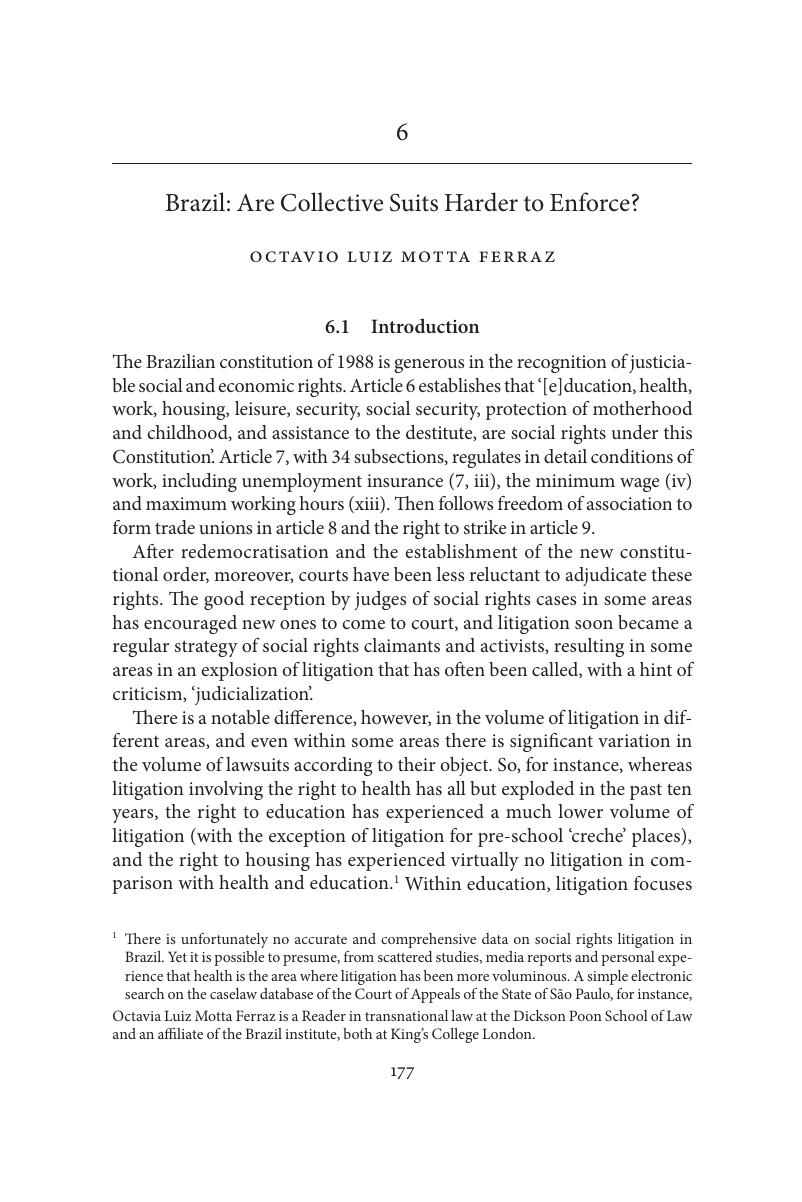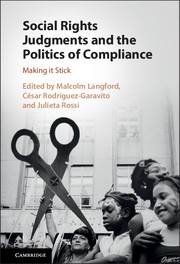Book contents
- Social Rights Judgments and the Politics of Compliance
- Social Rights Judgments and the Politics of Compliance
- Copyright page
- Contents
- Figures and Tables
- Contributors
- Preface
- Part I Overview
- Part II Case Studies
- 4 Costa Rica: Understanding Variations in Compliance
- 5 Argentina: Implementation of Collective Cases
- 6 Brazil: Are Collective Suits Harder to Enforce?
- 7 Canada: Systemic Claims and Remedial Diversity
- 8 United States: Education Rights and the Parameters of the Possible
- 9 India: Compliance with Orders on the Right to Food
- 10 South Africa: Rethinking Enforcement Narratives
- 11 The African Human Rights System and Domestic Enforcement
- 12 Reproductive Rights Litigation: From Recognition to Transformation
- 13 International Housing Rights and Domestic Prejudice: The Case of Roma and Travellers
- Part III Concluding Perspectives
- Case Index
- Thematic Index
- References
6 - Brazil: Are Collective Suits Harder to Enforce?
from Part II - Case Studies
Published online by Cambridge University Press: 16 March 2017
- Social Rights Judgments and the Politics of Compliance
- Social Rights Judgments and the Politics of Compliance
- Copyright page
- Contents
- Figures and Tables
- Contributors
- Preface
- Part I Overview
- Part II Case Studies
- 4 Costa Rica: Understanding Variations in Compliance
- 5 Argentina: Implementation of Collective Cases
- 6 Brazil: Are Collective Suits Harder to Enforce?
- 7 Canada: Systemic Claims and Remedial Diversity
- 8 United States: Education Rights and the Parameters of the Possible
- 9 India: Compliance with Orders on the Right to Food
- 10 South Africa: Rethinking Enforcement Narratives
- 11 The African Human Rights System and Domestic Enforcement
- 12 Reproductive Rights Litigation: From Recognition to Transformation
- 13 International Housing Rights and Domestic Prejudice: The Case of Roma and Travellers
- Part III Concluding Perspectives
- Case Index
- Thematic Index
- References
Summary

- Type
- Chapter
- Information
- Social Rights Judgments and the Politics of ComplianceMaking it Stick, pp. 177 - 200Publisher: Cambridge University PressPrint publication year: 2017



